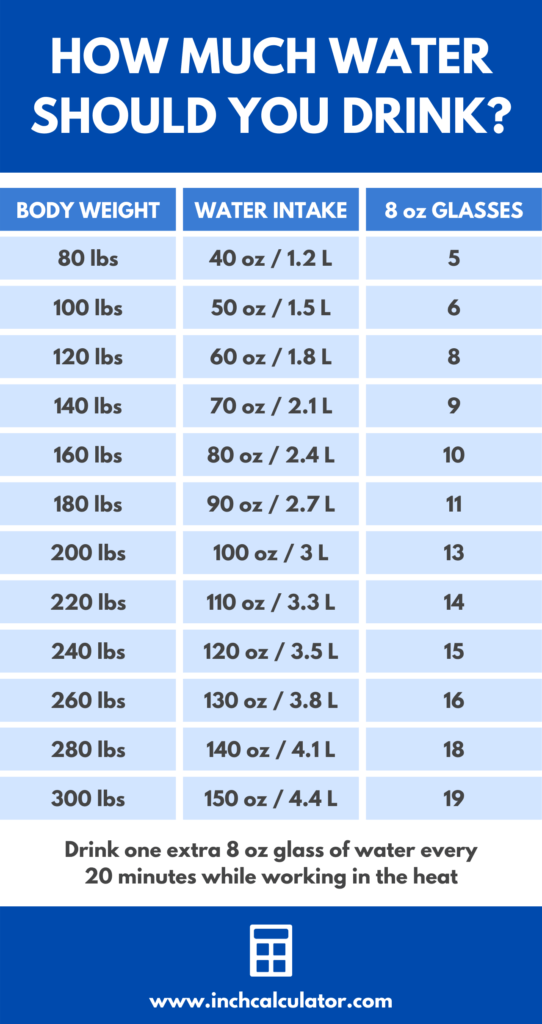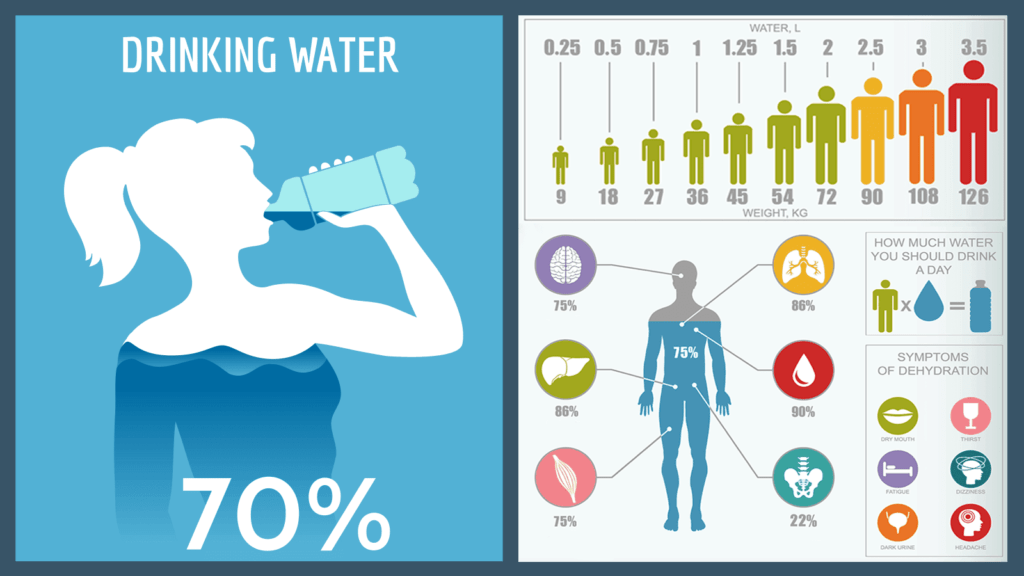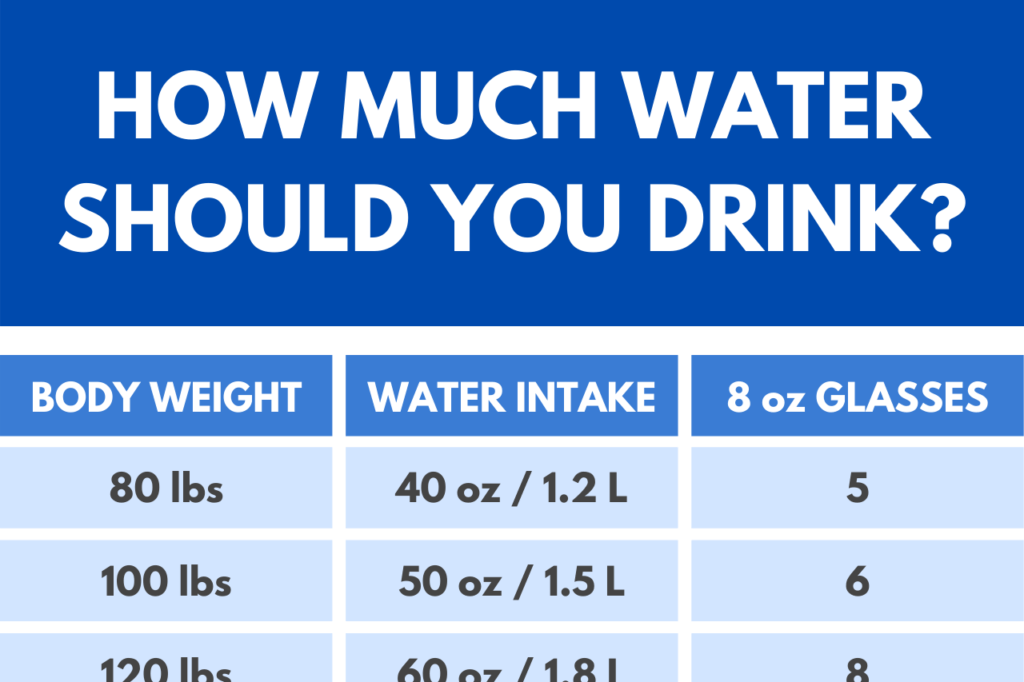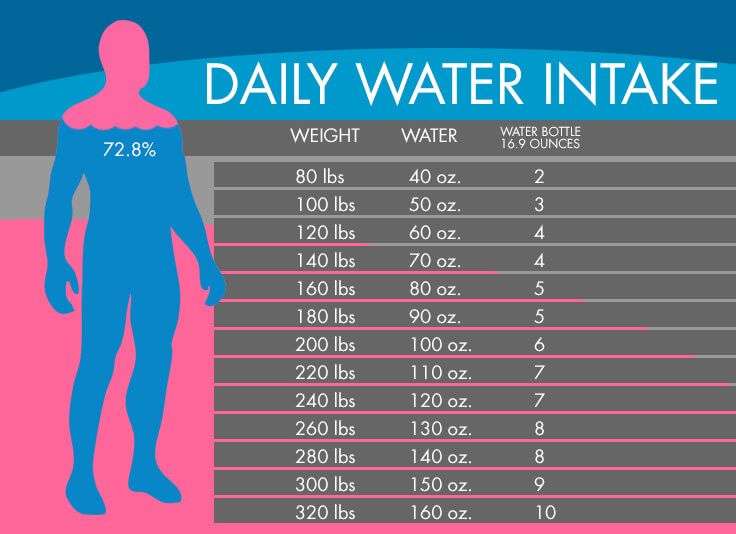Today, we’ll explore the topic of how much water you should drink daily for weight loss. There’s a common misconception that drinking more water can aid in shedding those extra pounds. We’ll discuss the benefits of hydration for weight loss and provide you with some guidelines to determine your optimal daily water intake. So, if you’re looking to lose weight, stay hydrated, and learn the truth about water consumption for weight loss, keep reading!

Importance of Hydration
Understanding the Role of Water in the Body
Water is an essential component of the human body, accounting for approximately 60% of our total body weight. It plays a crucial role in various bodily functions, including digestion, absorption, and transport of nutrients, as well as the regulation of body temperature. Adequate hydration is essential for maintaining overall health and well-being.
How Proper Hydration Affects Weight Loss
Proper hydration is particularly important for individuals aiming to lose weight. When it comes to weight loss, water can be a valuable tool. It is a zero-calorie beverage that can help you feel full and satisfied, reducing your overall calorie intake. In addition, staying properly hydrated can boost your metabolism, aiding in the process of burning calories. Let’s explore the factors affecting daily water intake and the guidelines for water consumption.
Factors Affecting Daily Water Intake
Body Weight and Water Needs
Your body weight is an important factor to consider when determining your daily water intake. As a general guideline, it is recommended to consume at least 2.7 to 3.7 liters (91 to 125 fluid ounces) of water per day for individuals weighing around 70 kilograms (154 pounds). This amount may increase if you are physically active or live in hot climates.
Physical Activity Levels
Physical activity increases the body’s water requirements. When you engage in exercise or any form of physical exertion, you lose water through sweat. It is crucial to replenish this lost fluid by drinking enough water before, during, and after your workout. As a general rule, aim to consume an additional 1 to 2 cups of water for every hour of exercise.
Climate and Environmental Conditions
The climate and environmental conditions in which you live also impact your water needs. In hot and humid conditions, your body perspires more to cool down, resulting in increased water loss. It is essential to drink additional water to compensate for this increased fluid loss. Similarly, high altitudes, which can cause increased urination and breathing, may require higher water intake to prevent dehydration.

General Guidelines for Water Consumption
Recommended Daily Water Intake
As mentioned earlier, the recommended daily water intake for individuals weighing around 70 kilograms (154 pounds) is 2.7 to 3.7 liters (91 to 125 fluid ounces). However, it is important to note that individual water needs may vary based on factors such as age, gender, activity level, and overall health. It is always best to consult with a healthcare professional to determine your specific hydration needs.
Dividing Water Intake throughout the Day
It is advisable to divide your water intake throughout the day rather than consuming it all at once. This allows for better absorption and utilization of water within the body. Regular and consistent water consumption can also help prevent the risk of dehydration and support weight loss efforts. Carry a water bottle with you and sip on it throughout the day to ensure you meet your hydration goals.
Signs of Dehydration to Watch Out For
Dehydration can have detrimental effects on overall health and weight loss efforts. It is crucial to be aware of the signs of dehydration and take necessary actions to prevent it. Some common signs of dehydration include:
- Feeling thirsty
- Dry mouth and throat
- Dark yellow or strong-smelling urine
- Fatigue or dizziness
- Headache
- Dry or flaky skin
If you experience any of these symptoms, it is important to hydrate immediately by drinking water or consuming hydrating foods.
Benefits of Drinking Water for Weight Loss
Increasing Metabolic Rate
drinking water can significantly impact your metabolic rate, which refers to the number of calories your body burns at rest. Research has shown that staying properly hydrated can increase your metabolic rate, thus aiding in weight loss efforts. Drinking cold water may have a more significant impact on metabolism, as your body uses energy to warm the water to its core temperature.
Suppressing Appetite
Many people mistake thirst for hunger, leading them to consume unnecessary calories. By staying hydrated, you can better distinguish between hunger and thirst, reducing the chances of overeating. Drinking water before a meal can help you feel fuller, leading to reduced calorie intake.
Enhancing Fat Burning
Proper hydration is essential for optimal fat metabolism. When you are dehydrated, your body’s ability to burn fat decreases, making it more challenging to lose weight. On the other hand, staying hydrated supports the efficiency of various metabolic processes, including fat burning.

Hydration Strategies for Weight Loss
Drinking Water Before Meals
One effective strategy for weight loss is to drink a glass of water before each meal. This not only helps you stay hydrated but also contributes to reducing calorie intake. By filling your stomach with water, you are likely to eat less during the meal, leading to a decrease in overall calorie consumption.
Replacing High-Calorie Beverages with Water
One common mistake people make when trying to lose weight is consuming high-calorie beverages, such as sugary sodas or fruit juices. These beverages not only add unnecessary calories to your diet but also do not provide the same hydration benefits as water. Replace these high-calorie beverages with water to reduce calorie intake and aid in weight loss.
Incorporating Hydrating Foods in the Diet
In addition to drinking water, incorporating hydrating foods into your diet can contribute to overall hydration. Fruits and vegetables with high water content, such as watermelon, cucumber, and lettuce, provide hydration and essential nutrients. Including these foods in your meals and snacks can help you stay hydrated while promoting weight loss.
Factors to Consider to Optimize Water Intake
Personal Preference and Taste
Water consumption can vary based on personal preference and taste. Some individuals prefer flavored water or infused water with fruits and herbs to enhance the taste. Experiment with different options to find what works best for you and enables you to meet your hydration goals.
Including Other Hydrating Beverages
While water is the best choice for hydration, other beverages can also contribute to your daily water intake. Unsweetened herbal tea, infused water, and low-calorie flavored drinks can provide hydration while adding variety to your hydration routine. However, be cautious of beverages high in sugar or caffeine, as they may have negative impacts on hydration.
Monitoring Urine Color as an Indicator
One simple way to check your hydration status is by monitoring the color of your urine. Ideally, your urine should be a pale yellow color. A dark yellow or amber color may indicate dehydration and the need to drink more water. Remember to hydrate regularly throughout the day to maintain optimal hydration levels.

Tips for Staying Hydrated throughout the Day
Carrying a Water Bottle
Carrying a water bottle with you wherever you go is an excellent way to stay hydrated throughout the day. Whether you are at work, running errands, or exercising, having water readily available encourages regular sipping and prevents dehydration.
Setting Reminders to Drink Water
With busy schedules and distractions, it is easy to forget to drink water. Setting reminders on your phone or using water tracking apps can help you stay on track with your hydration goals. These reminders can prompt you to drink water at regular intervals, ensuring you maintain proper hydration throughout the day.
Adding Flavor to Water with Fruits or Herbs
If you find plain water boring, try adding slices of fruits or herbs to enhance the flavor. Lemon, cucumber, mint, and berries can infuse water with a refreshing taste, making it more enjoyable to drink. Be creative and experiment with different combinations to find your favorite infused water flavors.
Common Myths about Water and Weight Loss
Water Retention and Water Weight
One common myth is that drinking more water leads to water retention and weight gain. The reality is that staying hydrated actually helps reduce water retention. When you are dehydrated, your body holds onto water, leading to increased water weight. By consistently drinking enough water, you support proper fluid balance and prevent excess water retention.
Spot Reducing Fat with Water
Another misconception is that drinking water can target fat loss in specific body areas. Unfortunately, there is no evidence to support the idea of spot reducing fat through water consumption. While staying hydrated supports overall weight loss efforts, fat loss occurs throughout the body and is influenced by various factors, including diet and exercise.

Potential Risks of Excessive Water Intake
Effects of Overhydration on Health
While staying hydrated is essential, excessive water intake can lead to a condition known as overhydration or water intoxication. Overhydration occurs when you consume more water than your body can eliminate. This can disrupt the balance of electrolytes in your body, leading to symptoms such as nausea, headaches, confusion, and even seizures. It is important to strike a balance and follow the recommended guidelines for water consumption.
Understanding the Concept of Water Poisoning
Water poisoning, also known as water intoxication or hyponatremia, is a severe condition that occurs when the body’s sodium levels are diluted by excessive water consumption. This condition can be life-threatening and requires immediate medical attention. It is crucial to be mindful of your water intake and avoid excessive consumption.
Conclusion
Proper hydration is essential for overall health and plays a significant role in weight loss. By understanding the importance of water in the body and following general guidelines for water consumption, you can optimize your hydration levels and support your weight loss goals. Remember to listen to your body’s signals, stay consistent with your water intake, and consult with a healthcare professional for personalized recommendations. With the right approach to hydration, you can enhance your weight loss journey and improve your overall well-being.
